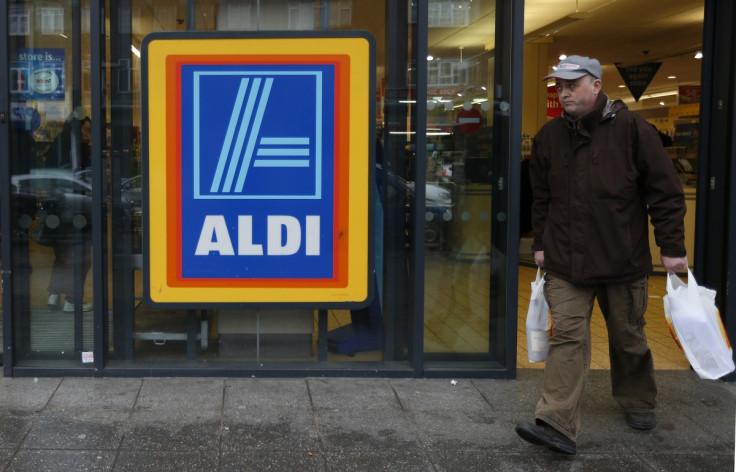Aldi and Lidl Well Ahead in the Race to the Bottom

Budget supermarket Aldi released its 2013 financial results today (29 September), and it proved to be a new giant leap for the German brand.
Group operating profits for 2013 increased by more than 50% on the previous year for Aldi, with UK turnover reaching a record high of £5.2bn, up from £3.89bn.
Its UK pre-tax profit soared by 65% to £260.9m for the year ending on 31 December.
Serial discounters such as Aldi and Lidl have been relentless in their bid to take more market share from the more conventional outlets such as Tesco and Asda, and seem to have caught the big guns by surprise, especially Tesco.
According to Kantar Worldpanel's latest statistics regarding market share, Aldi's market share is up to 4.8% while Lidl occupied 3.5%.
Although this is still small, and dwarfed by Tesco's 28.8%, it is growing, whereas Tesco's is declining.
In November 2013, Aldi's market share was 3.9% but the real damage to the big four, in the form of Asda, Tesco, Morrisons and Sainsbury's, was done during the recession.
As soon as the economic crisis swept across the UK and the world, consumers seemingly overnight became more cost conscious.
With that in mind, it was a race to the bottom in terms of pricing. Tesco has been hit the hardest by this, with the latest blow coming when Sainsbury's revealed that it would no longer include Britain's biggest supermarket in its price matching scheme.
Instead, Sainsbury's will only compare its prices against Asda, offering a coupon for the difference if a customer's basket of groceries would have been cheaper at the latter.
A sign that the beleaguered Tesco is no longer able to keep up in the race to the bottom? Or a conscious decision that it wants to play by its own rules?
Either way, it looks bleak for Tesco.
Aldi and Lidl on the other hand already had the head start on most of the other players in the markets when it comes to driving the price down.
Whereas, once upon a time, they were looked down upon by British consumers for being too 'common', they're now held in high regards for giving the public the cheapest option.
A recent study from Good Housekeeping Magazine compared a list of 19 seasonal products, such as a leg of lamb, across the nine major supermarkets - Aldi, Sainsbury's, Asda, Tesco, Morrisons, Lidl, The Co-operative, Waitrose and Marks & Spencer.
The results showed that budget stores can offer the same basket up to £20 cheaper than those at the higher end of the scale.
Lidl's basket was the cheapest at £33.61, with Aldi a close second at £34.01. For Sainsbury's it cost £49.32 and £52.59 at M&S.
The recession has left most consumers slightly scarred. Gone are the days where the average consumer can afford to go spending willy-nilly.
A fear has been installed in the Great British public that might be with us for a long time. The dilemma for the bigger supermarkets is that it may be too long for them.
© Copyright IBTimes 2025. All rights reserved.






















